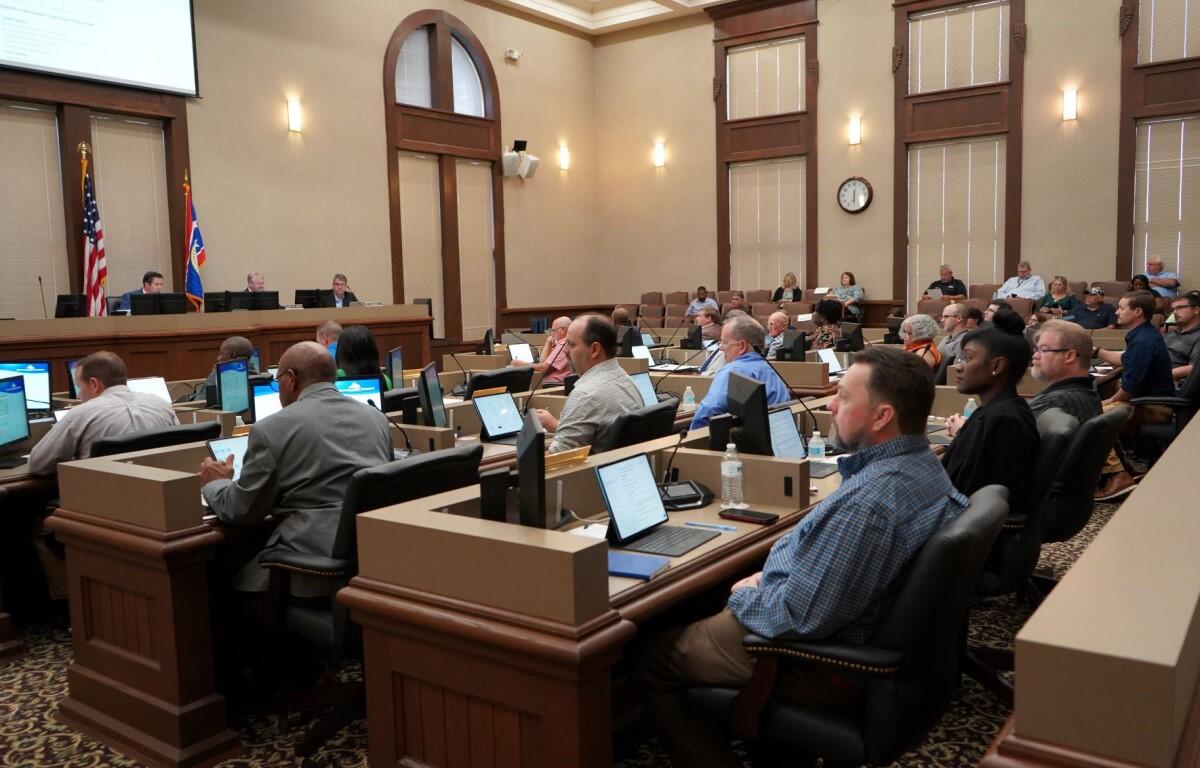CLARKSVILLE, TN (CLARKSVILLE NOW) – Johnathan Harris recently discovered that for the past six years, he has been overpaying his property taxes. But due to the state’s reimbursement limit, he can’t be paid back for the full amount.
At a Montgomery County Commission meeting on Dec. 9, Harris urged commissioners to find a way to reimburse him and to get the law changed so that he and other taxpayers can reclaim overpaid taxes.

Unapplied Greenbelt status
During this year’s appraisal process, Harris, an Armed Forces veteran, discovered that his property, which is a part of the Greenbelt program, had been inaccurately assessed without the Greenbelt status applied. Instead, it was listed as a residential property. That means he’s been overpaying his taxes since 2018, to an amount exceeding $4,000.
Greenbelt status helps preserve agricultural, forest and open space land by assessing it at its present use, rather than its highest and best use.
Montgomery County Assessor of Property Erinne Hester said they were made aware of the error in October. “When the situation was brought to our attention, we corrected it immediately,” Hester said. “We sent the paperwork to the Trustee’s Office for the refund for the 2024 and 2023 taxes and corrected them moving forward.” She said the property is now properly enrolled in the Greenbelt program.
Hester said the miscalculation was caused by an employee who no longer works there who failed to apply the value once the forestry information was entered.
Who is responsible for overpayments?
Hester explained that while the Montgomery County Assessor’s Office tries to provide as much information as possible, state law puts the responsibility on the property owner for knowing what they’re paying taxes on. For example, state law doesn’t require local government to even send out tax notices.
“The other restriction that Tennessee has is, in the law, the jurisdiction can only back assess, or recapture, overpaid or underpaid taxes up to two years,” Hester said.
In this case, the law worked against the taxpayer. But the two-year limit works both ways, and more commonly it prevents the government from going back perhaps dozens of years to collect from assessment errors in the government’s favor.
At the commission meeting, Harris said, “The law fails to account for administrative mistakes, and its strict two-year reimbursement limit unfairly penalizes taxpayers for errors beyond their control.” He requested reimbursement or credit applied to his future property taxes, and that the commissioners amend the law “to extend the reimbursement period in cases where overpayments result from administrative errors.”
However, the County Commission doesn’t have the power to issue a reimbursement or credit, and only the Tennessee General Assembly can amend state law.
Chris Smith contributed to this report.
DON’T MISS A STORY: Sign up for the free daily Clarksville Now email newsletter


